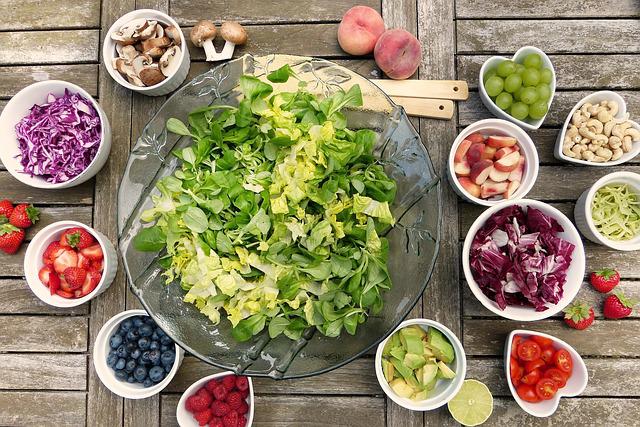The right mix of nutrients and vitamins can improve overall health and reduce the likelihood of disease. Women looking for supplements should choose trustworthy brands with premium-quality formulas containing essential vitamins. Some vitamins can resolve specific conditions, while others are for general wellness. Here’s an overview of the best women’s liquid vitamins and their benefits and uses:
Antioxidants (Vitamin A, C, & E)
Vitamins A, C, and E are generally classified under antioxidants because they can protect the body from free radicals and oxidants, which are known to damage cells. Women need lots of antioxidants to reduce the effects of aging and eliminate free radicals. Antioxidants can also boost the immune system. Each vitamin has a unique role and benefits, as shown below:
• Vitamin A
Retinol, beta carotene, and carotenoids convert to vitamin A in the body and have many benefits for women. Vitamin A can improve eyesight, skin properties, and soft tissue health. Women can get vitamin A from carrots, apricots, guava, kale, papayas, peaches, pumpkins, spinach, tomatoes, red peppers, and more.
• Vitamin C
Ascorbic acid or vitamin C is used to make red blood cells and heal wounds. The vitamin also increases norepinephrine, a brain chemical that increases alertness and concentration. Women can increase their vitamin C intake by incorporating more broccoli, grapefruit, kiwi, oranges, peppers, tomatoes, strawberries, and potatoes.
• Vitamin E
Also known as tocopherol, vitamin E is another essential antioxidant needed for healthy living. Women can use vitamin E to eliminate free radicals, slow down aging, and keep cells healthy. Vitamin E comes from cod-liver oil, corn oil, peanut butter, sunflower seeds, safflower oil, hazelnuts, wheat germ, and more.
B Vitamins
The B vitamins, such as B6, B12, and folate (folic acid), are essential for a healthy brain, heart, and muscles. B6 (pyridoxine) is needed for metabolism to convert food into energy. Women can receive adequate vitamin B6 from fish, avocadoes, chickpeas, beans, oatmeal, poultry, cereals, and potatoes. The body uses vitamin B12 to make red blood cells and facilitate metabolism. Familiar sources of B12 include cheese, fish, eggs, milk, meat, and yogurt.
Older women and those with anemia or on vegan diets are often advised to increase their vitamin B12 intake. Folate is another B vitamin required for healthy brain and spinal cord development. Folate makes DNA and RNA, which are the building blocks of human cells. The vitamin also protects DNA from changes that can result in cancer. Folic acid is also prescribed to pregnant women to prevent congenital disabilities.
Popular diet sources include chickpeas, kidney beans, liver, eggs, legumes, leafy greens, asparagus, melons, strawberries, citrus fruits, and more. B6, B12, and folate are the three most supplemented B vitamins, but doctors recommend taking thiamin (B1), riboflavin (B2), niacin (B3), biotin (B7), and other options. The B vitamins ensure the cells function properly and create new blood cells. Women can also take them to maintain healthy brain cells, skin, and other body tissues.
Vitamin D
Women need vitamin D, which is more of a hormone. Vitamin D is necessary for moving calcium and phosphorus into the bloodstream. Calcium and phosphorus are required for healthy and strong bones and can only be absorbed when vitamin D is present. When the body doesn’t have enough vitamin D, it’ll get some from the bones, causing thinning. Prolonged deficiency can lead to conditions like osteoporosis and a higher risk of fractures and bone issues.
Sunlight is a natural source that helps your body synthesize vitamin D. Food sources include eggs and fish like mackerel, salmon, and sardines. Women can also get vitamin D from fortified foods, but supplements are much better in delivering the needed quantities. Vitamin D supports cognitive health, and its supplements can help treat inherited bone disorders, rickets, and plaque-type psoriasis.
Vitamin K
Women need vitamin K to prevent excessive bleeding and improve bone health. Prothrombin and osteocalcin are both vitamin K dependent. The former is required for the blood clotting process, while the latter produces healthy bone tissue. Women looking to increase their intake of vitamin K should eat more green leafy vegetables. Other sources include soybean oil, fish oil, cooked spinach, alfalfa, and broccoli.
Vitamin K deficiency is rare, but taking less of the nutrient can increase clotting time, causing hemorrhage and excessive bleeding. Women with a suspected deficiency can use multivitamin supplements to ensure adequate amounts of vitamin K. Although vitamin K is linked to bone health and clotting, it can also improve episodic memory in older women. The vitamin is good for cognitive and heart health and features in most women liquid vitamins.
Quality Women’s Liquid Vitamins
All vitamins and minerals are vital for healthy living, and women can get them from the right diet. Supplementation is also an effective way to deliver a healthy mix of vitamins and nutrients. Those looking for women’s liquid vitamins should choose a reputable brand. Vitamin supplements are only as effective as the formula and ingredients. Choosing safe and high-quality formulas is the best way to benefit from vitamin supplements.




